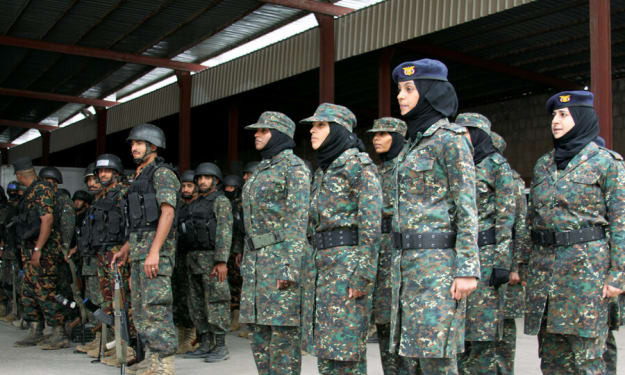The Deterioration of Pablo Escobar
The Drug Lord

In the annals of criminal history, few names resonate with the same level of infamy as Pablo Escobar, the notorious Colombian drug lord. His rise to power, marked by unimaginable wealth and influence, was matched only by his spectacular fall, culminating in a violent demise that brought an end to an era of narcoterrorism. While Escobar's reign of terror is well-documented, the intricacies behind his eventual degradation remain a subject of intrigue and speculation. In this investigation, we delve deep into the factors that contributed to the downfall of one of the most powerful criminal figures of the 20th century.
Pablo Emilio Escobar Gaviria was born on December 1, 1949, in Rionegro, Colombia. From humble beginnings, he ascended the ranks of the criminal underworld with remarkable speed. In the 1970s and 1980s, Escobar spearheaded the Medellín Cartel, which monopolized the global cocaine trade, flooding the streets of America with drugs and amassing unimaginable wealth in the process.
Escobar's rise to power was fueled by a combination of ruthless ambition, strategic alliances, and a keen understanding of the illicit drug market. Under his leadership, the Medellín Cartel became synonymous with violence and corruption, terrorizing Colombia and destabilizing governments through bribery, intimidation, and targeted assassinations.
At the pinnacle of his power, Escobar was considered one of the wealthiest individuals in the world, with an estimated net worth of $30 billion. He lived a lavish lifestyle, complete with sprawling estates, private jets, and a menagerie of exotic animals. Escobar's influence extended far beyond the confines of Colombia, with political connections reaching the highest echelons of power.
However, Escobar's reign of terror did not go unchallenged. As the violence escalated and the body count rose, he found himself increasingly at odds with Colombian authorities, who launched a relentless campaign to dismantle the Medellín Cartel and bring him to justice.
The turning point in Escobar's downfall can be traced back to a series of events that unfolded in the late 1980s and early 1990s. In 1989, he ordered the assassination of Luis Carlos Galán, a presidential candidate who had vowed to extradite drug traffickers to the United States. The brazen act of violence sparked outrage both domestically and internationally, galvanizing efforts to bring Escobar to justice.
Meanwhile, pressure from the United States to extradite Escobar mounted, with the Colombian government facing increasing scrutiny over its handling of the drug lord. In 1991, Escobar surrendered to authorities under the condition that he would not be extradited to the United States, a move that was widely seen as a strategic maneuver to evade justice.
Despite his surrender, Escobar's grip on power was beginning to slip. Within the ranks of the Medellín Cartel, tensions simmered as rival factions vied for control of the lucrative drug trade. Escobar's iron-fisted leadership style alienated many of his closest associates, leading to betrayals and defections that weakened his position.
Furthermore, Escobar's personal life was fraught with turmoil, as his extramarital affairs and erratic behavior strained relationships with his family and allies alike. His wife, Maria Victoria Henao, and their children were forced into a life of constant fear and uncertainty, as Escobar's enemies closed in from all sides.
In 1993, Escobar's luck finally ran out. After months on the run, he was tracked down to a safe house in Medellín, where he was surrounded by Colombian special forces and American DEA agents. In a dramatic shootout, Escobar was fatally wounded, bringing an end to his reign of terror.
The demise of Pablo Escobar marked the end of an era in Colombian history, but the legacy of his reign of terror continues to haunt the country to this day. Despite his death, the drug trade thrives, fueling violence and corruption in Colombia and beyond.
The degradation of Pablo Escobar was a complex and multifaceted process, driven by a combination of internal strife, external pressure, and personal demons. From his humble beginnings to his spectacular downfall, Escobar's life is a cautionary tale of the perils of unchecked power and the devastating consequences of a life lived on the wrong side of the law.
While his death may have brought a sense of closure to some, the scars left by Escobar's reign of terror continue to linger, serving as a stark reminder of the enduring impact of organized crime on society. As Colombia continues to grapple with the legacy of its most infamous son, the story of Pablo Escobar serves as a cautionary tale of the dangers of corruption, greed, and unchecked ambition.
About the Creator
Sahil Lathwal
I'm Sahil, a passionate writer. My voice weaves stories, emotions, and melodies into an enchanting tapestry. Welcome to my world of creativity and expression. 🎶📝🎤





Comments
There are no comments for this story
Be the first to respond and start the conversation.